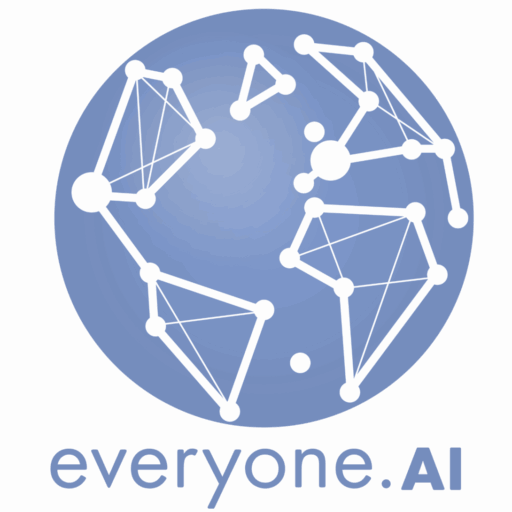
Our Values
We are committed to upholding the recognized ethical standards in AI. Therefore, AI must be secure, protecting children from online risks; ethical, respecting their rights and well-being; fair, ensuring the absence of discriminatory bias; inclusive and equitable, offering equal access to all; transparent, with clear and understandable processes; and respectful of data, ensuring confidentiality according to current standards.
To this, we add the necessity of framing AI development in a way that preserves children’s cognitive and socio-emotional development, taking into account their specific needs at each stage of their development.
Our Team
Bridging our multi-disciplinary experiences and expertises for a better AI
Founding & Leadership Team
Research Team
Engineering Team
US Contributors

Gaëlle Desroziers
Web & Graphic Design

Dave Shesgreen
Legal Advisor

Julie Cazajus
Brand Manager

Bethany Robertson
Senior Advisor
EU Contributors

Ludwig Charlaté
Growth Contributor - Youth Advocate

Paulin Avril
Growth Contributor
Volunteers Students
Strategic Communications & Digital Presence:
Education & Curriculum Scaling Initiative:
Child-Safe AI Benchmark:
Youth Contributors and Advocates:
Alumni
Board Members
Beneficial AI for Children
Our goal is to raise awareness about the responsibilities inherent in developing, implementing and using Artificial Intelligence (AI) applications and products directed toward children. We want to invite stakeholders to reflect on the utilization of AI for children.
Acknowledging both the transformative power and the inherent risks of AI addressed to children, we are dedicated to the development and use of AI that is purposeful, responsible and ethical, ensuring the safety and well-being of future generations:
- Child safety. Prioritize and rigorously protect children’s security and well -being, ensure their privacy and safeguard them from harmful content and online risks in all AI interactions.
- Child first AI: Uphold children’s rights and foster AI solutions that prioritize children’s well -being and serve meaningful purposes. This commitment includes ensuring that human oversight is an integral part of these systems and avoiding misleading or negative influences.
- Ethical, equitable and inclusive AI: Implement AI that is ethical, equitable and inclusive to ensure it benefits all children regardless of their background, ability or needs. AI systems must consistently mitigate bias through their entire life cycle to respect human rights and ensure access to all children.
- Age-appropriate AI: AI design. Create and use AI solutions that are age -appropriate cognitively and socio -emotionally. It’s essential to have clear age guidelines and only provide access to features that are appropriate for the developmental period. (e.g. early childhood, adolescence).
- Fair and transparent AI: Clearly communicate the principles and processes behind AI decision -making. This includes transparent explanation of AI functions, data usage and decision criteria tailored to be understandable to children and their guardians.
- Data privacy for children: To uphold current regulations on data privacy such as COPPA and GDPR and protect children’s data privacy with robust safeguards. This includes ensuring informed consent. minimizing collection of personally identifying data, and limiting retention of data to what is essential for product efficacy and improvement or research. Please sign below to show your commitment to protecting children in the AI era.









































